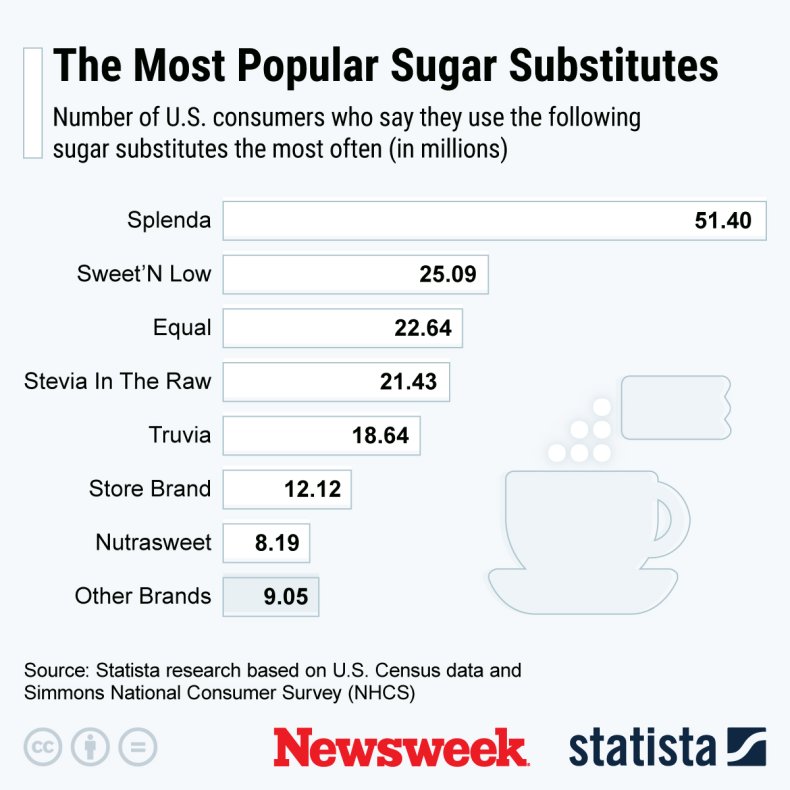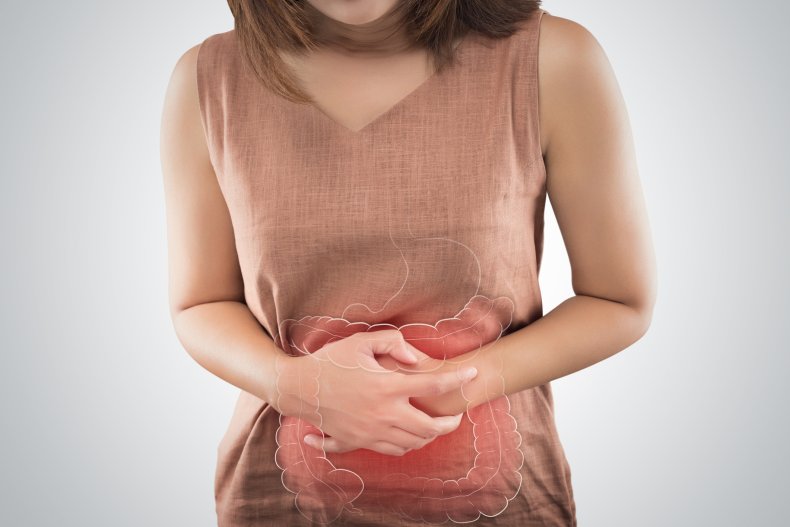Sugar is always made out to be the bad guy. But, when it comes to your health, switching to artificial sweeteners might be doing more harm than good.
Researchers from North Carolina State University found in a recent study that a chemical found in one of the most widely used artificial sweeteners can break up our DNA. The problem is sucralose, a zero-calorie sweetener that is 600 times sweeter than sugar, according to the FDA.
“Sucralose is utilized in tens of thousands of food, beverage, and pharmaceutical products worldwide,” Susan Schiffman, an adjunct professor at North Carolina State University who led the study, told Newsweek. “For example, it is found in baked goods, beverages, chewing gum, gelatins, frozen dairy desserts, and pharmaceutical products.”
nito100/Getty
The most frequently encountered form of sucralose in the United States is marketed under the brand name Splenda. Splenda is the most popular brand of sugar substitute in the country, with over 50 million users, to data from MRI Simmons. This can be seen in the graphic below, provided by Statista.
Splenda also produces a range of different sweeteners, including stevia and allulose, but their original sweetener is based on sucralose. Newsweek reached out to Splenda via their website contact form for comment.
While sucralose might help you cut back on calories, research has shown that it can have negative impacts on your gut. “Independent scientific studies show that ingestion of sucralose can damage the cell membranes of the gut and cause irritable bowel syndrome,” Schiffman said.

MRI Simmons/Statista
When sucralose is exposed to the cells that line our gut walls, it can damage the junctions that hold these cells together, causing the gut to become leaky.
“A leaky gut is problematic because it means that things that would normally be flushed out of the body in feces are instead leaking out of the gut and being absorbed into the bloodstream,” Schiffman said.
But that is not all: “Both human and animal studies show that ingestion of sucralose can disrupt the normal balance of bacteria in the gut and negatively alter blood concentrations of glucose and insulin [and] when used in cooking, [sucralose] can form chloropropanols, a potentially toxic class of compounds.”
In the study, which was published in the Journal of Toxicology and Environmental Health, Schiffman and her team found that the chemicals in sucralose can affect our cells at an even deeper level by damaging our DNA.
When sucralose is broken down in the gut, our gut bacteria can transform it into a structurally similar molecule called sucralose-6-acetate. This chemical is also produced in the manufacture of sucralose and can be found in small amounts in commercial sucralose products.
As part of their study, Schiffman and her team exposed human blood cells to sucralose-6-acetate and monitored its effects. The results did not look good.
“Sucralose-6-acetate was genotoxic in human blood cells,” Schiffman said. “Genotoxic compounds can cause breaks in DNA with microscopically visible damage to chromosomes. This can cause inflammatory diseases such as IBD and even cancer.”

Tharakorn/Getty
In the lab-based experiments, sucralose-6-acetate caused the cells to activate genes associated with inflammation and cancer in human intestinal tissue.
“Our in vitro studies used human tissue, so the findings are directly relevant for the human body,” Schiffman said.
Of course, the human body is a lot messier than a laboratory, and the interactions between different molecules are not always as predictable. Even so, the effect of these molecules on human cells is concerning.
“I would strongly advise against use of sucralose as a sweetener,” Schiffman said. “The amount of sucralose-6-acetate in a single daily sucralose-sweetened drink far exceeds the threshold of toxicological concern for genotoxicity of 0.15 μg/person/day recommended by regulatory agencies such as the European Food Safety Authority.
“This work raises a host of concerns about the potential health effects associated with sucralose and its metabolites. It’s time to revisit the safety and regulatory status of sucralose because the evidence is mounting that it carries significant risks.”
Is there a health issue that’s worrying you? Do you have a question about artificial sweeteners? Let us know via [email protected]. We can ask experts for advice, and your story could be featured on Newsweek.


